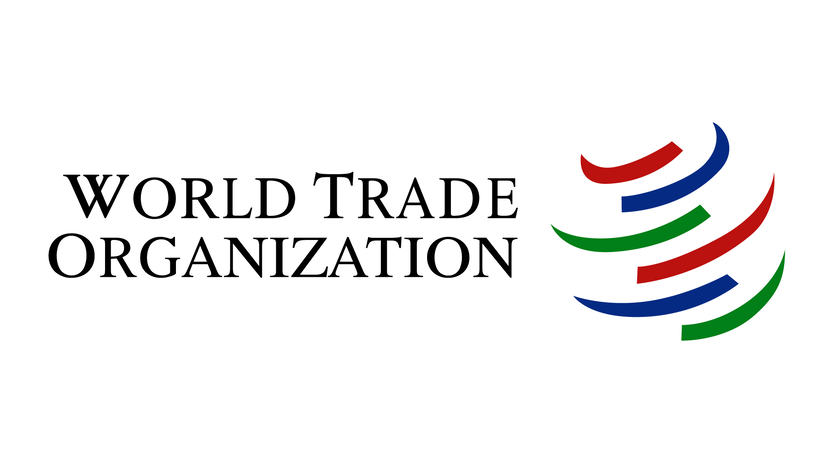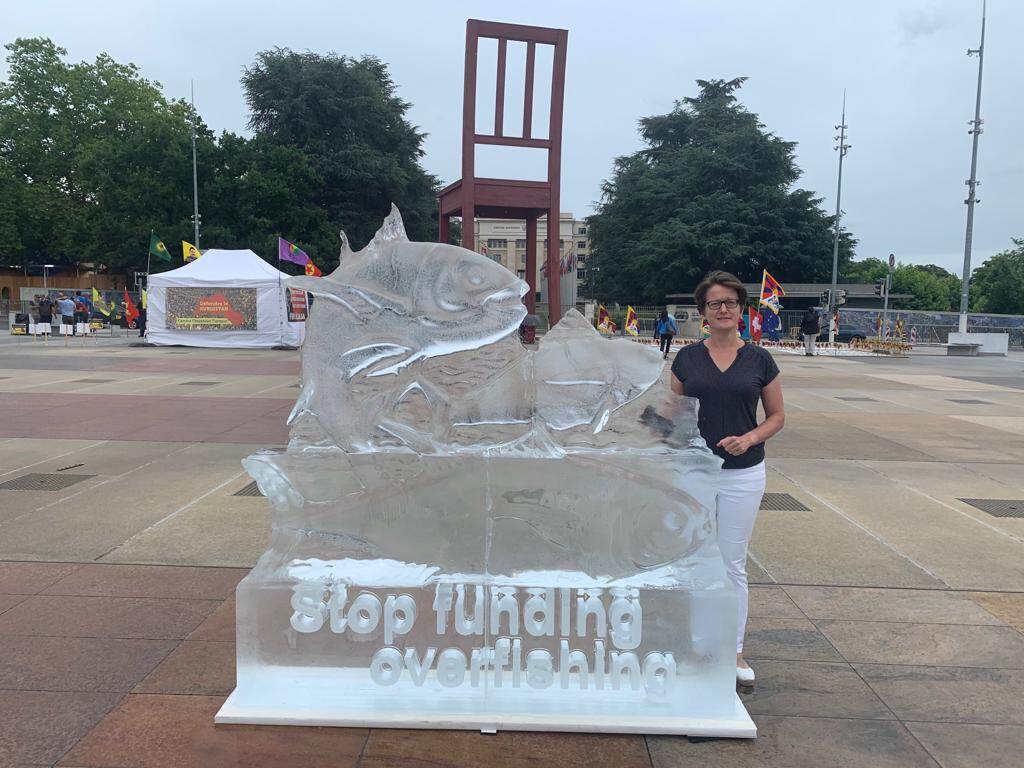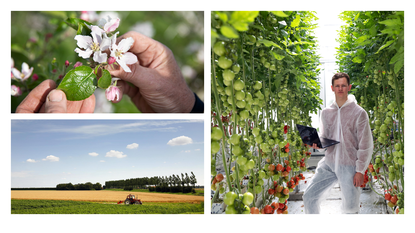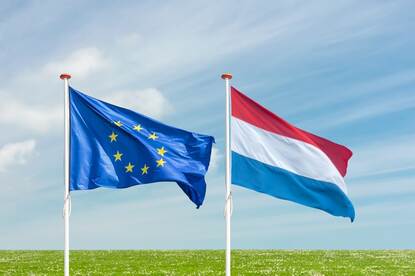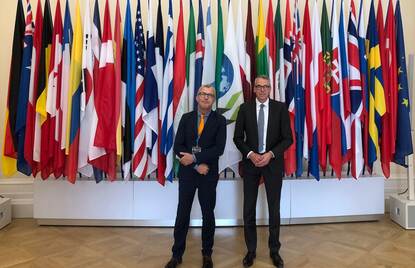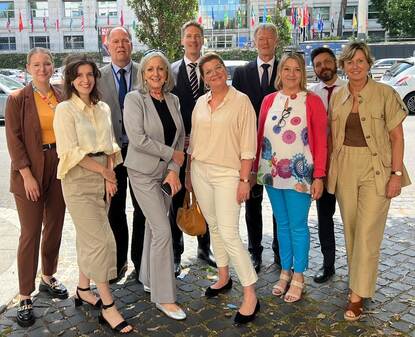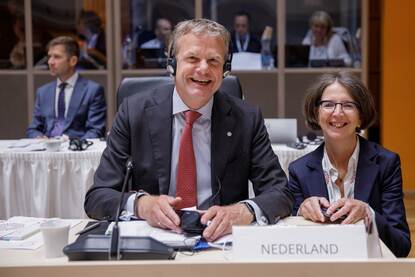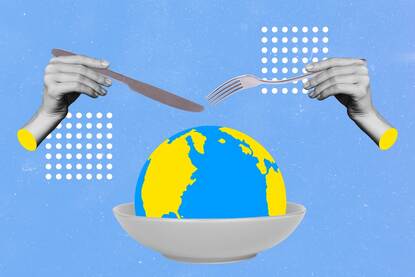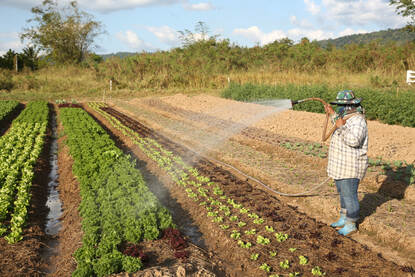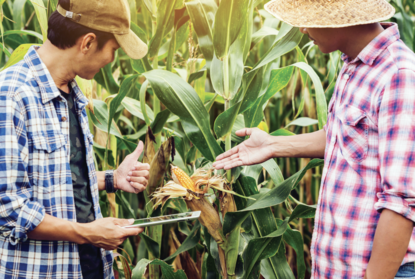Foto Commerijn Plomp works as First Secretary for the Permanent Representation of the Netherlands in Geneva, Switzerland
Commerijn Plomp works for the Permanent Representation of the Netherlands in Geneva, Switzerland. She spends most of her time at the World Trade Organization (WTO), in the negotiations on agricultural files and other multilateral agreements that shape global food production, trade, and sustainability. ‘I am not officially an agricultural counselor,’ she says. ‘But many rules that are vital for agricultural trade and subsidies are set in Geneva. Therefore, it is important to be represented here as a country.’
What does the Permanent Representation in Geneva look like?
‘Like most other countries, the Netherlands has a Permanent Representation which is a sort of embassy dedicated to the negotiations at the various bodies of the United Nations and at the World Trade Organization (WTO). That’s where I work. I am part of the team of Economic Affairs, which covers economic organizations in Geneva, such as: WTO, UN (United Nations), WIPO (World Intellectual Property Organization) and ILO (International Labor Organization). Within this team, I cover topics related to trade and agriculture, fisheries, environment, and climate. I also cover intellectual property. The agricultural files represent a major share of my portfolio.
Other teams work on topics like disarmament and human rights. All in all, about 40 people work in our mission. We ensure that when decisions are taken in the Geneva based international organizations, the Dutch views and opinions are taken into account.’
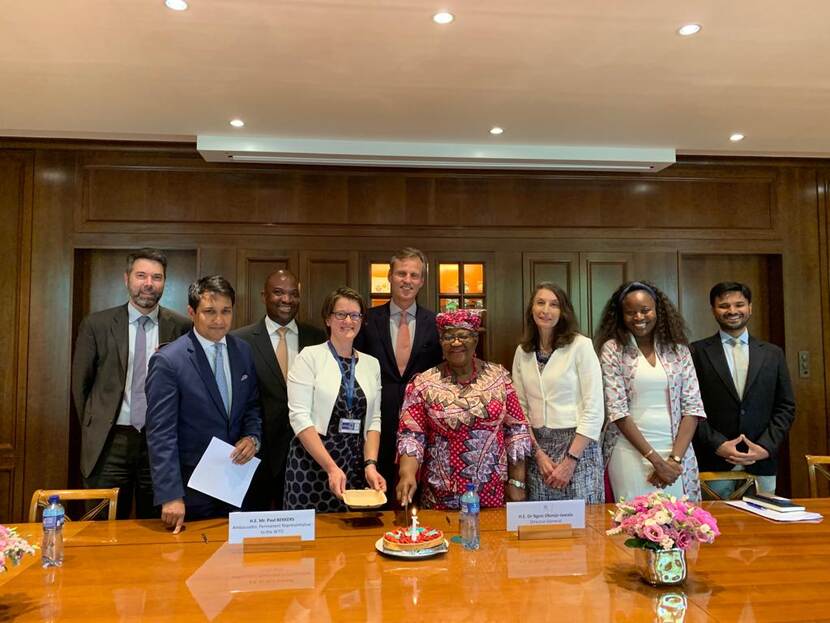
Can you tell us a bit more about the WTO?
‘The WTO is the organization in which countries from all around the world commit to set binding rules for freer and fairer trade in all sectors. It is mandated to limit countries’ options for applying tariffs and prohibits the use of subsidies when they are distorting trade. For more than twenty years, the members of the WTO (now 166 countries) have been negotiating about agriculture. The WTO’s Agreement on Agriculture dates back to 1995, the same year that the WTO was established as an outcome of the Uruguay Round. As the name suggests, the WTO is mandated to set multilateral rules for the trade aspects of agriculture. This includes the regulation of subsidies. At the WTO, members also negotiate rules for several other topics that may impact agricultural trade, like sanitary and phytosanitary standards, intellectual property and fisheries subsidies. These are also in my portfolio.’
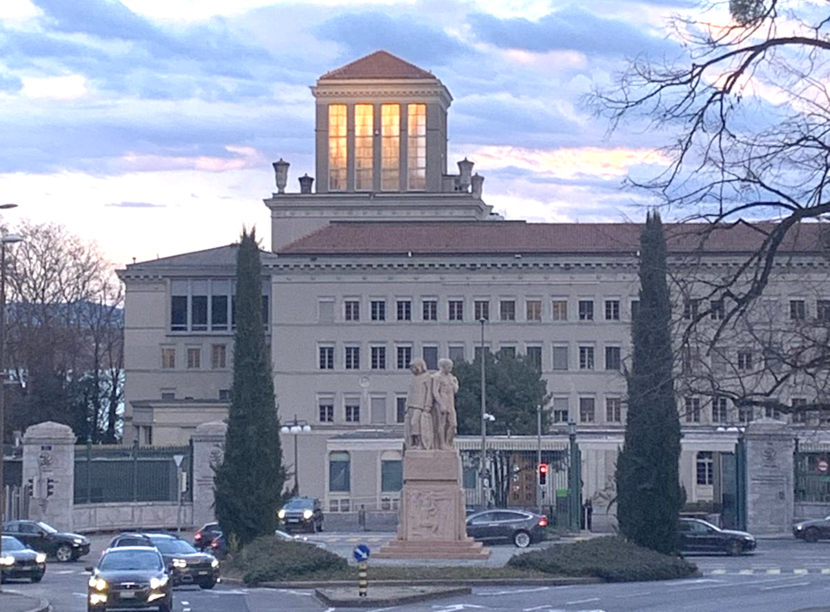
Can you elaborate on what you do and how you promote Dutch interests?
‘I spend most of my time away from the Permanent Representation, at the WTO. To a large extent, I attend meetings and report about them to Capital. Capital is the Geneva word for headquarters, in our case The Hague.’
‘Most of the time, the Netherlands’ interest can be summarized as ensuring a level playing field: no market distortion by unfairly designed subsidies, and equal access to markets by limiting tariffs and other policies that create import barriers. We want to ensure that the most vulnerable have access to enough healthy food. It is important for us that food is produced in a sustainable manner, in terms of the environment, biodiversity, animal welfare and consumer safety. We seek ways in which securing this sustainability does not lead to unfair competition. Especially the latter leads to tough discussions.’
‘Together with policy makers from the Ministry of Agriculture, Nature and Food Quality and the Ministry of Foreign Affairs, I identify the specific Netherlands’ interests. Based among others on that, questions and instructions for the EU negotiators are prepared. After all, in the field of trade, and therefore in most of the committees within WTO, the EU negotiates on behalf of its member states. The instructions are provided and negotiated through the Trade Policy Committee in Brussels. In Geneva we have an additional EU coordination meeting with the negotiators, just before the official committee meetings. Since we speak with non-EU countries almost daily, we can give context and suggest new openings or developments in the negotiations.’
‘Apart from the more formal input with regards to negotiations and implementation, the WTO also provides a platform to exchange best practices. This adds another dimension to the job: organizing panel discussions and presentations with speakers that share Dutch expertise. And of course, there are often incoming visits in which we have a role. It is good to see that these are common again, after being quite silent during COVID.’
‘For the WTO, it is important for us that food is produced in a sustainable manner, in terms of the environment, biodiversity, animal welfare and consumer safety.’
In what sense does your work matter to the international activities of the Dutch agricultural sector?
‘In the global context, the Netherlands is both a large exporter and a large importer, especially in the agricultural sector. This implies that Dutch companies are significant stakeholders in the predictability of rules and policies in other countries. This goes for most companies in the sector, be they active in production, processing or logistics: predictability supports their investment decisions. The WTO is the place where this predictability is pursued on a global scale. Be it tariffs, import policies, (phyto)sanitary standards, or intellectual property protection, for companies this predictability and a level playing field are of key importance. Furthermore, as global citizens, we are all stakeholders in creating a level playing field at the intersection of environmental concerns and trade, and in ensuring global food security. Through multilateral frameworks for trade, WTO has an important role in achieving sustainability and food security.’
How would you explain the WTO’s significance?
‘I think we underestimate the significance of the rules that the WTO has already managed to set. Those are not dead letters. Complying with them is not a voluntary gesture. In the field of agriculture and sanitary and phytosanitary standards, we spend as much time enforcing the rules, as we spend negotiating new ones. The WTO offers members a title to question each other about the trade impact of policies and measures, and to start a legal procedure if you are not satisfied with the answer.’
‘The Netherlands’ leading position in agricultural trade underlines the importance of global trade rules for the people working in Dutch agricultural production, processing and logistics’
And what about the negotiations?
‘When the WTO started agriculture negotiations, it was a very different organization. With every accession of large new exporting members, the negotiating dynamics changed. This is also because new members had to negotiate their way into the organization, all having to commit to their own policy reforms and schedules specifying limitations in tariffs and subsidies. But mainly it is because with new members and changing patterns of trade, the power dynamics changed.’
‘The biannual Ministerial Conferences usually provide an impetus to the negotiations. In late February 2024, the 13th Ministerial Conference (MC13) was held in Abu Dhabi. After the successful completion of an Agreement on Fisheries Subsidies at MC12, a second agreement was pursued to further limit subsidies that allow for overcapacity and overfishing. Unfortunately, at MC13, members were not ready yet to commit to this second part of the agreement. For the next Ministerial, this is expected to be on the agenda again. It is also fair to expect a more holistic approach to the agricultural negotiations, in which also subsidies will have a major role.’
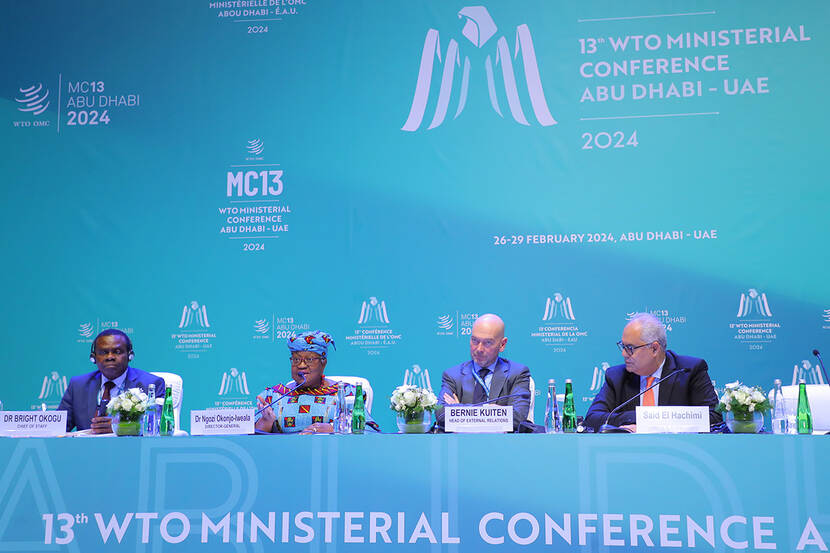
What does the rest of the world ask from the EU?
‘The EU has worked hard to reform agricultural subsidies and make sure they are no longer considered trade distorting. This allowed the subsidies to be counted as “Green Box” (not affecting prices or production), and fully WTO-compatible. China is now conducting similar reforms. Some other major agricultural producing countries still have a lot of work to do to get there. There is now proof that Green Box subsidies are an effective tool for achieving sustainability goals.’
‘At the same time, some other countries claim that all subsidies are harmful and should be reconsidered. In the sanitary and phyto-sanitary domain, especially the Latin American countries are critical about some of the EU’s import regulations, of which they question the scientific basis. Supplier countries also challenge the EU’s import policies related to the recent deforestation regulation, saying the EU has no right to interfere in forestry management in their countries.’
Do you think all members are able to implement the commitments they agreed to at the WTO?
‘It is good to see that the WTO is setting rules, enforcing rules, but also providing capacity building to developing members for implementing rules. One of the other articles showcases the Standards and Trade Development Facility (STDF). Another recent example relevant for the sector is the Fish Fund.’
‘The Netherlands is one of the donors to this new Fish Fund, which will help developing countries implement the Fisheries Agreement (The WTO Agreement on Fisheries Subsidies). The Fish Fund will operate under the supervision of a steering committee consisting of eight donor countries, eight beneficiary countries and eight experts from international organizations. I will have the opportunity to be one of the eight donor members on the Steering Committee of the Fund. This allows me to promote that the agreement will be implemented as discussed. It also allows me to have direct working relations with the eight developing countries who are also on the Steering Committee and more intense engagement with other donors. For 2024, the Nigerian delegate and myself will take turns in chairing the steering committee’s meetings.’
Do you like your work?
‘It is an exciting place to work. There are not so many places where you get to work and meet with nearly all countries in the world daily, while also having the privilege of representing your own country. And the job offers a nice combination of substance, negotiations and coordination.’
‘I am particularly honored to be part of the work around the Agreement on Fisheries Subsidies. This is the first WTO agreement of which the core purpose is sustainability.’
Read more
Contact
- Address: Permanent Representation of the Netherlands to the WTO in Geneva, 31-33 Avenue Giuseppe Motta; 1202 Geneva
- E-mail: GEV@minbuza.nl
- Phone: +41 22 7481800
- Website (in English): Permanent Representation of the Netherlands to the WTO
